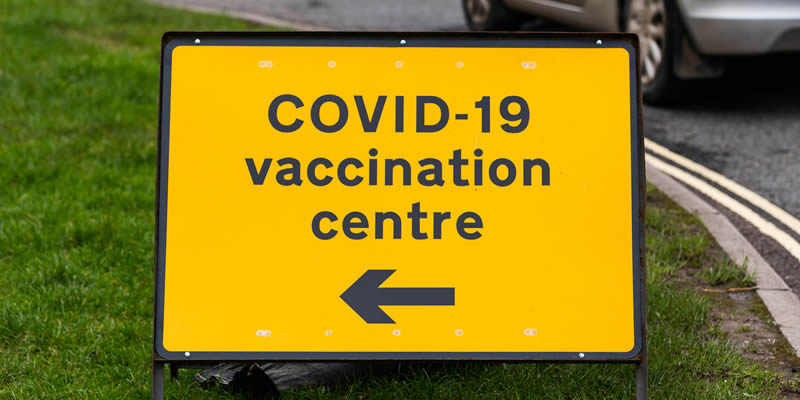As the COVID-19 vaccine programme continues across the UK, research has shown one in four people will experience mild side effects after receiving it.
Symptoms after being given either the Pfizer or AstraZeneca vaccine can include headache, fatigue and tenderness, however, they only last a couple of days.
A study, led by King’s College London, has found that the general population has reporter much fewer side effects that were reported in the clinical trials.
- Black people showing most concern about having COVID-19 vaccine
- Feeling unwell after COVID-19 vaccine is ‘completely normal’
The research has also found significant decrease of infection rates from 12 to 21 days after the first dose of the Pfizer (58 per cent reduction) and AstraZeneca (39 per cent reduction).
The health data was collected from 627,383 people who have been using the ZOE COVID Symptom Study app.
Researchers also found that women under 55 were more likely to experience side effects and those who had already had COVID-19 were three times more likely to react slightly to the Pfizer vaccine.
Professor Tim Spector OBE, lead scientist on the ZOE COVID Symptom Study app and Professor of Genetic Epidemiology at King’s College London said: “The data should reassure many people that in the real world, after-effects of the vaccine are usually mild and short-lived, especially in the over 50’s who are most at risk of the infection.
“Rates of new disease are at a new low in the UK according to the ZOE app, due to a combination of social measures and vaccination and we need to continue this successful strategy to cover the remaining population.”
- AstraZeneca insists vaccine is ‘safe’ amid blood clotting concerns
- WHO warns countries must not rely on COVID vaccine to control the spread
Dr Cristina Menni, first author of the study from King’s College London, added: “The results also show up to 70% protection after 3 weeks following a single dose, which is fantastic news for the country, especially as more people have now had their second jabs.
“Our results support the aftereffects safety of both vaccines with fewer side effects in the general population than reported in the Pfizer and AstraZeneca experimental trials and should help allay safety concerns of people willing to get vaccinated.”
The study has been published in the Lancet Infectious Diseases journal.









